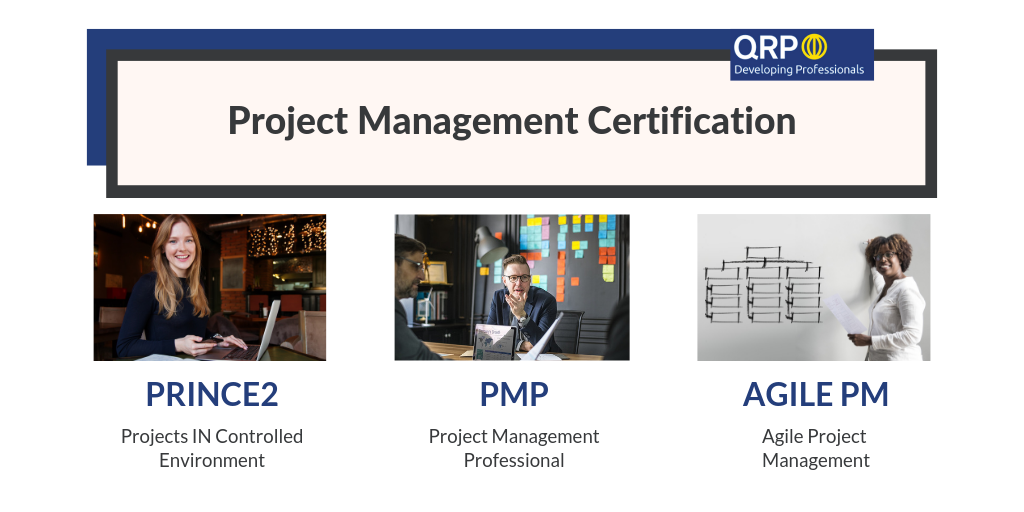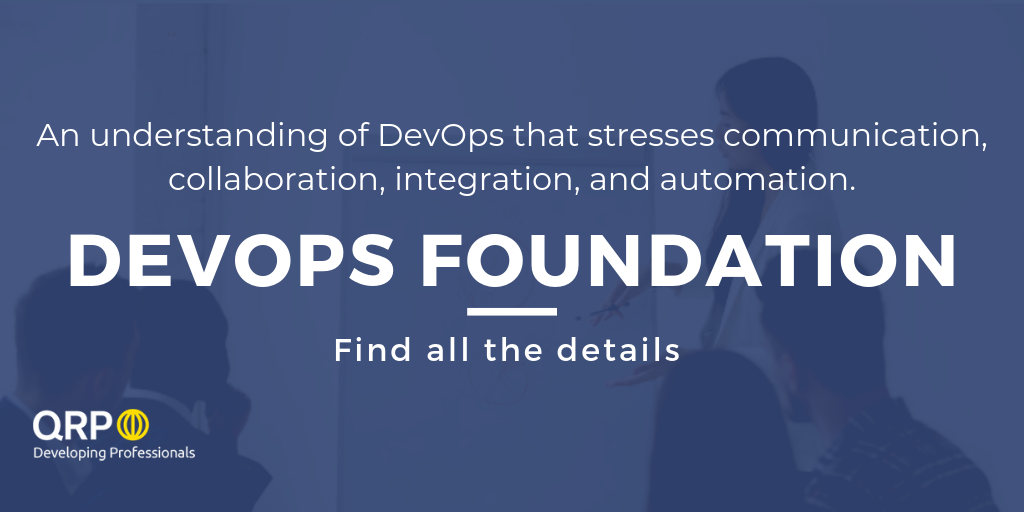News
View the latest inspiring and positive news and information about what's going on in the PM and IT world.
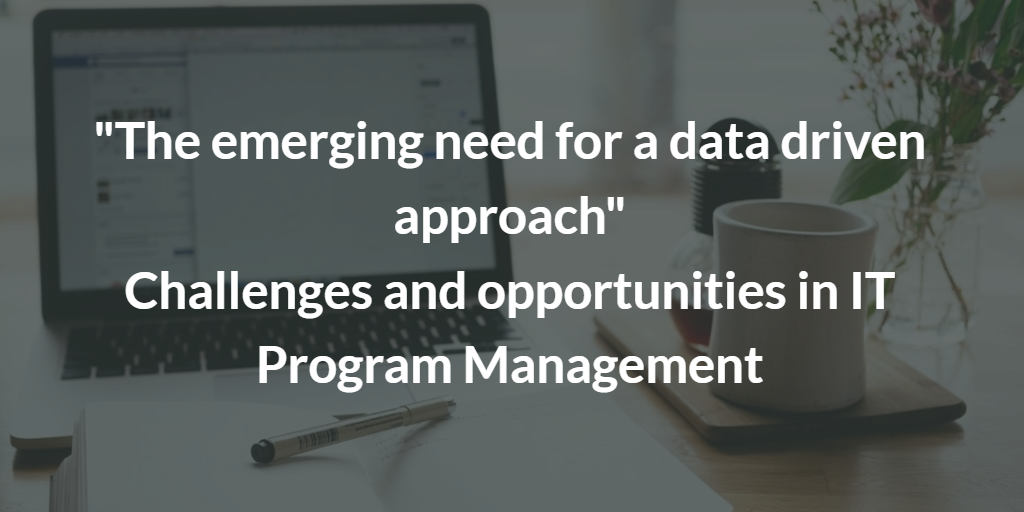
1. What's your current job title?
I am a Program Manager within IT Operations.2. What do you do?
Currently, I'm leading a transversal change project inside IT & Telecom departments of Infrabel, the organization I work for, to adopt a new way of working for all planned interventions, preventive maintenance as well as new projects. To do this, we are adopting new tools and adapting our processes. Currently, we are moving from a series of tools to SAP PM. As an IT Program Manager, the main activities I deal with are the follow-up of projects within the program as well as activities related to the business continuity of the portfolio of applications I manage. The difference between an IT Program Manager and a non-IT Program Manager inside the railway sector is that non-IT Program Managers manage programs related to the rail infrastructure or train signalling. It's more "core business" for a railway.3. How did you end up into a program management career?
I started my career as IT Consultant and had the opportunity to work for major projects across Europe. My technical skills and my multicultural background made the management to propose me to take the role of Project Manager for Europe. In parallel, I started my PMP® and ITIL certification and also an Executive Master in IT Management at Solvay Business School where I learned a lot about IT security and Audits exploring new frameworks such as COBIT and CMMI and IT management techniques. I ended up in Program and Portfolio Management Career since 2009.4. What's the biggest issue/change you see in your community at the moment?
The biggest issue/change at this moment is to adopt rapidly the new way of working while the teams are working with different technologies and also that the techniques are specific to each team. Also, using a data-driven approach can improve significantly our work and productivity. I think that the current approach is not enough data-driven at least for the field I work in and for the projects and programs I manage. That's why a unified tool (SAP PM) will bring the consolidation data and will improve the one truth approach in the overall organization.5. What are three things you’ve told yourself that you would like to learn in the next future to develop you as a professional?
I would like to improve my soft skills to conduct the change, for example, negotiation skills. The second thing is to participate more in conferences related to mobility and related innovations. The last thing is to stay updated about tools and techniques to coach and manage my teams with the rise of data-driven and all innovations around.
Agile Leadership – driving optimism
Gallup researchers spoke to employees in the UK, France, Spain and Germany:- 20% of employees “strongly agree” that “The leadership of my company makes me enthusiastic about the future” — but that figure rises to 48% among employees who regard their companies as “agile.”
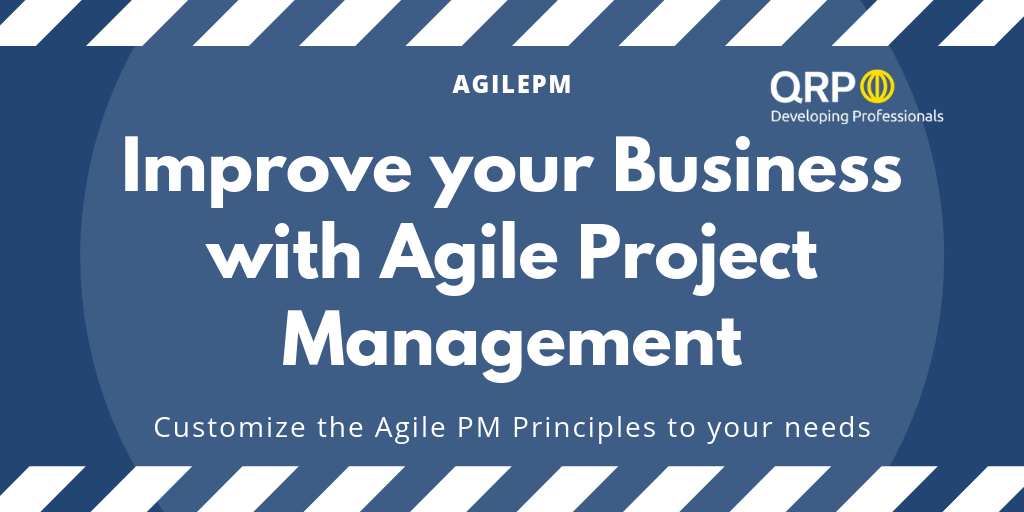
Agile Communication and Collaboration – constant knowledge sharing
The nature of the workplace has changed so much in recent decades. No longer is it expected that conversation is kept to a minimum and that everyone’s head is down. An Agile culture encourages ongoing conversation, collaboration, and relationship building. With a reduced reliance on a command and control hierarchy, team members are accountable to each other and strong relationships strengthen that bond. Cross-functional knowledge-sharing and interdepartmental collaboration have the power to break down the silos that often obstruct the path of transformation and reduce the potential to pull together different perspectives around challenges. Gallup highlights that existing systems in organisations often create barriers to information flow. Researchers found that only:- "About one in four overall “strongly agree” that they are satisfied with the cooperation between their department and other departments in their company".
Agile Employee Attitudes
Agile HR is growing fast as a critical strategic core for any organisation. The changing role of HR has evolved with the increasing realisation that an organisation’s future relies on the adaptability of its workforce. Issues such as wellbeing and personal development have been identified by the work of the Consortium as one of seven essential elements of an Agile organisation’s DNA. The evidence is strong that if businesses focus on passion and purpose first, then profit will follow. Gallup reports that one of the most powerful advantages of agile companies is their ability to give employees a sense of optimism about the organisation’s capacity to survive — and thrive — amid disruptive marketplace conditions. * Gallup, The Real Future of Work: the Agility issue Authored By Pam Ashby. First published in Agile Business Consortium Blog, September 2018 and reproduced with kind permission of “Agile Business Consortium”.
The ITIL 4 Foundation Qualification is a professional qualification in the field of IT Service Management. This qualification provides you with an understanding of service management concepts and the new ITIL framework, ITIL 4. There are no mandatory prerequisites. Work experience in IT services is recommended.
Examination Target
- Individuals working in the field of Service Management
- ITSM Managers and aspiring ITSM Managers
- ITIL V3- ITIL 2011 qualification holders wishing to update their knowledge.
Exam Format
- Language: English and French
- Duration: 60 minutes 25% extra time if you take the exam in a language that is not your native language
- Materials: No materials
- Closed book exam: books or notes are not permitted
- Questions: 40
- All 40 questions are Objective Test Questions (OTQs)
- Pass Mark: 26 marks or above
- Level of Thinking: Bloom’s levels 1 & 2
- There are 9 questions at Bloom’s Level 1 = approx. 22.5%
- There are 31 questions at Bloom’s Level 2 = approx. 77.5%
- Exam Format: Online or Paper
- Certificate Format: Online
- The online certificate is usually included in the exam fee, you could ask for a paper certificate to the Exam institute after your exam.
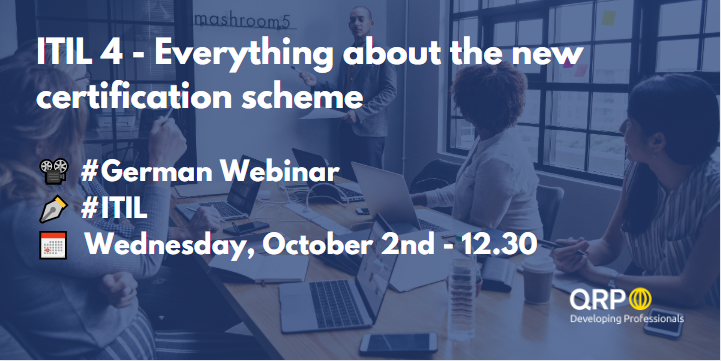
ITIL 4 Foundation Exam Sample Questions
The questions are all ‘multiple-choice’: Standard, List, Missing word, Negative.
Example ‘standard’ OTQ:
Which is a source of best practice?
a) Q b) P c) R d) S
Example ‘list’ OTQ:
Which statement about service asset and configuration management is CORRECT?
1. It does Q 2. It does P 3. It does R 4. It does S
a) 1 and 2 b) 2 and 3 c) 3 and 4 d) 1 and 4
NOTE: Two of the list items are correct. List style questions are never negative.
Example ‘missing word’ OTQ
Identify the missing word(s) in the following sentence.
A [?] defines requirements for services and takes responsibility for outcomes from service consumption.
a) Role Q b) Role P c) Role R d) Role S
Example ‘negative’ standard OTQ:
Which is NOT a defined area of value?
a) Q b) P c) R d) S
NOTE: Negative questions are only used, as an exception, where part of the learning outcome is to know that something is not done or should not occur.
ITIL 4 Foundation Objectives
This exam has been developed to assess whether you as IT professional can demonstrate sufficient understanding of the ITIL 4 service management framework. You need to pass the ITIL 4 Foundation examination to access the ITIL v4 higher level qualifications.
A candidate you need to demonstrate the achievement of these learning outcomes:
- Understand the key concepts of service management.
- Understand how the ITIL guiding principles can help an organization to adopt and to adapt service management.
- Understand the four dimensions of service management.
- Understand the purpose and components of the ITIL service value system.
- Understand the activities of the service value chain, and how they interconnect.
- Know the purpose and key terms of 15 ITIL practices Understand 7 ITIL practices.
The ITIL 4 Foundation Certificate
The validity of ITIL 4 Foundation certificate is a lifetime; this certificate will never expire.
QRP International is an ITIL Accredited Training Organisation (ATO) by Peoplecert on behalf of Axelos, is authorised to deliver ITIL 4 Foundation courses and can prepare you for the examination leading to the ITIL 4 Foundation Certificate in IT Service Management.
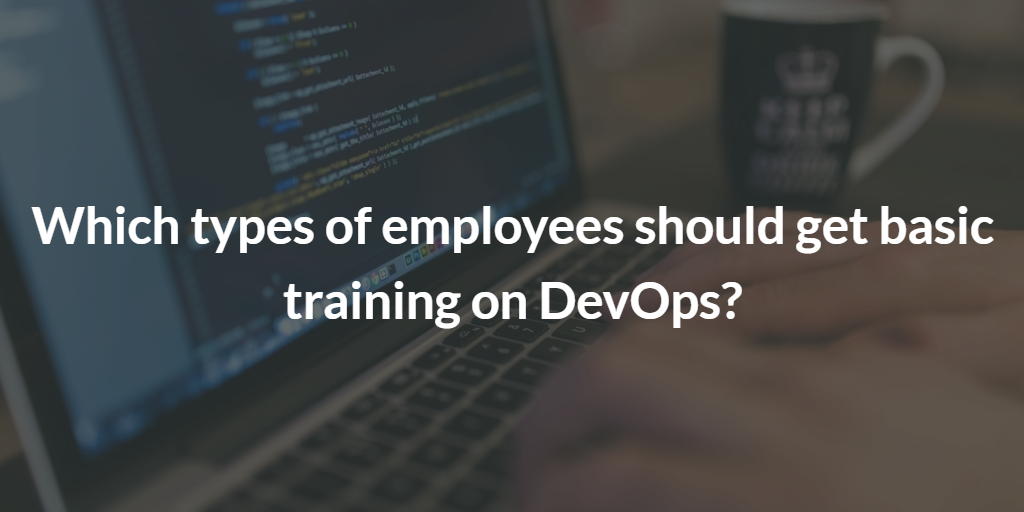
If your organization hasn’t adopted DevOps approaches yet, it probably will soon.
In the Interop ITX 2018 State of DevOps Report, only 9 percent of the business technology decision-makers surveyed said that their organizations had no DevOps plans. A third said their organizations had already adopted DevOps principles and another 46 percent had plans to do so within the next two years.
As DevOps spreads, many IT leaders have questions about which types of employees should get basic training on the fundamentals of the approach. We recommend that at least the following ten types of people get a foundational education about DevOps:
- Developers.
- IT operations professionals.
- QA/testing professionals.
- Project managers.
- IT managers.
- IT executives.
- Business stakeholders.
- IT security professionals.
- Consultants.
- IT vendors.
1. Developers
In many organizations, DevOps begins with the application development team adopting Agile methodologies. DevOps begins to spread as those in the operations team start to follow some of the same principles.
2. IT operations professionals
DevOps is all about closer integration between development and operations, so it stands to reason that the people involved in deploying, configuring and maintaining your applications and infrastructure will need to understand what DevOps is all about.
3. QA/testing professionals
The testing team plays a critical role in continuous integration and continuous delivery, and having this group on board is one of the keys to successful DevOps adoption.
4. Project managers
The switch from waterfall development to agile processes means PMs need to radically rethink the way they put together schedules and workflow plans.
5. IT managers
No DevOps implementation can succeed unless managers are actively championing the approach and encouraging staff to use DevOps principles on a day-to-day basis.
6. IT executives
Some of the most successful DevOps teams are those with CIOs, CTOs, and directors of IT who are advocating for the adoption of the approach.
7. Business stakeholders
DevOps affects those on the business side who work regularly with IT just as much as it affects IT professionals. If everyone can speak the same language, it will make the entire company more productive.
8. IT security professionals
Many organizations aren’t just adopting DevOps; they are adopting DevSecOps, which brings security into the mix and requires everyone in the IT organizations to be responsible for security.
9. Consultants
If your clients are going to be adopting DevOps approaches, you need to understand how that changes their culture, technology and processes — even if your consulting practice doesn’t directly concern DevOps, Lean, Agile or IT service management.
10. IT vendors
Ditto for technology suppliers. If you want organizations to choose your tools and solutions, you need to demonstrate that your products and services are designed for the way work gets done in DevOps environments.
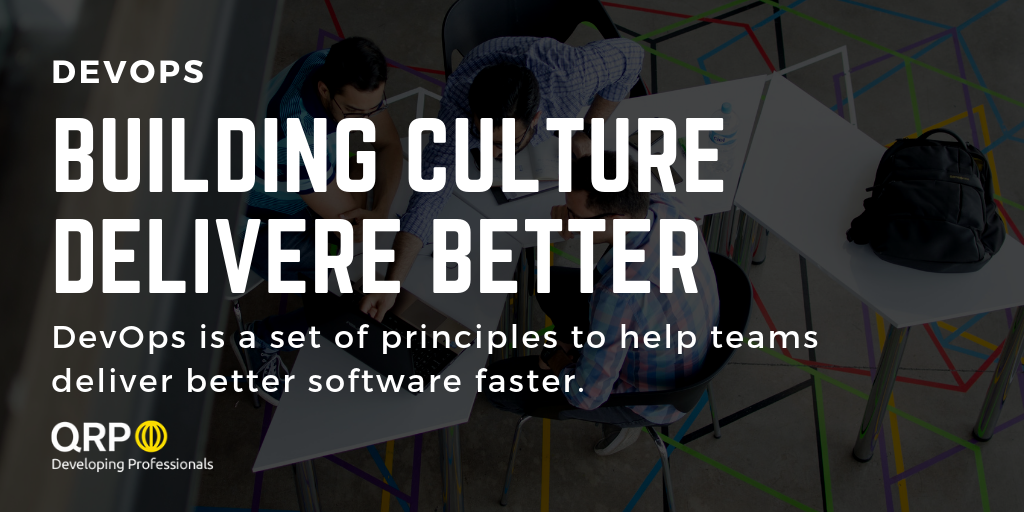
Of course, many experts would tell you that anyone who works in IT or with IT could benefit from learning the basics of the DevOps approach. While it’s become something of a cliché, it is true that DevOps requires a cultural transformation. When everyone on the team has the same shared knowledge and shared vocabulary, it makes it that much easier to implement the cultural change.
Attending that training together, whether it occurs virtually or in a physical classroom, offers the additional benefit of a shared experience. It also gives team members the opportunity to learn from each other and begin to make some of the changes that will be necessary for their cultural transformation.
If you have team members who could benefit from a basic understanding of DevOps, we encourage you to consider a DevOps Foundation certification.
Source: © 2019 DevOps Institute. All Rights Reserved.
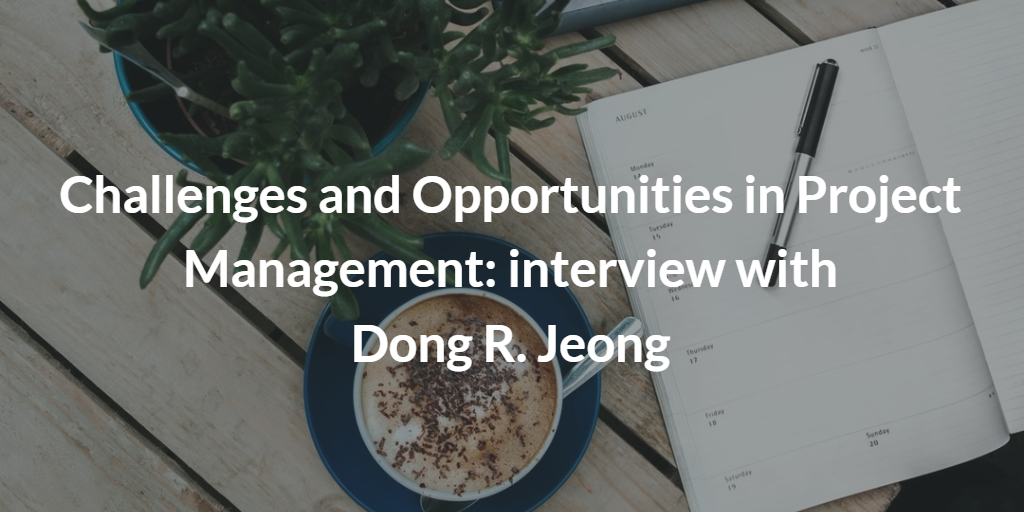
Dong R Jeong is a Cultural Advisor/Business Development Partner at Buzz Consult, company that facilitates collaborations between Europe and Korea. We asked about her professional life as Project Management.
1. What's your current job title?
Mine may not be known as other fancy titles out there, but it can be crucial for people who wish to establish any business cases between culturally challenging and different countries. I'm a cultural advisor as well as Business Development Partner.
2. What do you do?
My activities involve two ways. As a Project Manager, I contribute cultural expertise to build commercial linkages between Korean partners and the company to facilitate from day-to-day operation to corporate level project within the business development department. Then, I become more creative for my own company. I promote, foster, match companies, and escalate activities for building business cases between European and Korean partners by proving socio-cultural information. Also, I emphasize to my potential clients, how cultural awareness and appreciation takes a considerable part in the negotiation process as a key to successful commercial campaigns. Depending on the likely partnership arrangement, I design and execute the implementation of an active communication channel between parties.
3. How did you end up into a Project Management career?
I used to work as a business analyst in the pharmaceutical environment some time ago, and also myself being a native Korean living in Belgium, I became well aware there's a huge unmet need of a role to connect companies wishes to diversify their partnering companies. Both countries being noticeably active in the Pharma industry, it was evident to me they can be a good match for collaboration. However, though, what was blocking to escalate exploring potential business cases was the fact that both parties lacked cultural awareness for each other. So, I decided to dedicate my knowledge and experience to support those parties wishes to work together yet having difficulties in initiating talks. Moreover, for doing this talk to be well heard, I needed to be well organized. One moment, I realized that I was doing Project Management and found myself again later as a certified Project Manager.
4. What's the most significant issue/change you see in your community at the moment?
I see booming opportunities. My main area, for now, is pharmaceutical industry and biotech companies. More and more Korean pharmaceutical as well as biotech companies looking for global partnerships and collaborations, and one of the most active candidate countries is Belgium with evident industrial competency.
5. What are three things you've told yourself that you would like to learn in the next future to develop you as a professional?
Firstly, learning to read body languages as part of my soft skill development. Understanding the person with different cultural awareness in front of you with limited action might be a significant challenge in the business environment. However, people do communicate with their body language to others, and I believe this takes priority to understand how our body relates non-verbally to escalate business activities. PMO as a second one. Managing projects are exciting; however, only knowing to do so, it's like to be a big fish in a small pond. I want to draw a big picture to grow. Lastly, pursuing study in corporate finance. Connecting companies with goodwill is a good beginning. Able to identify the excellent potential partnering opportunities based on evidence is the next stop. Getting a degree may not be an absolute necessity but surely a consideration for me in the coming years.

Dong R Jeong
Dong Rim represents Buzz Consult, a small consultancy company that facilitates collaborations between Europe and Korea while promoting cultural awareness as the key to success in international commerce.
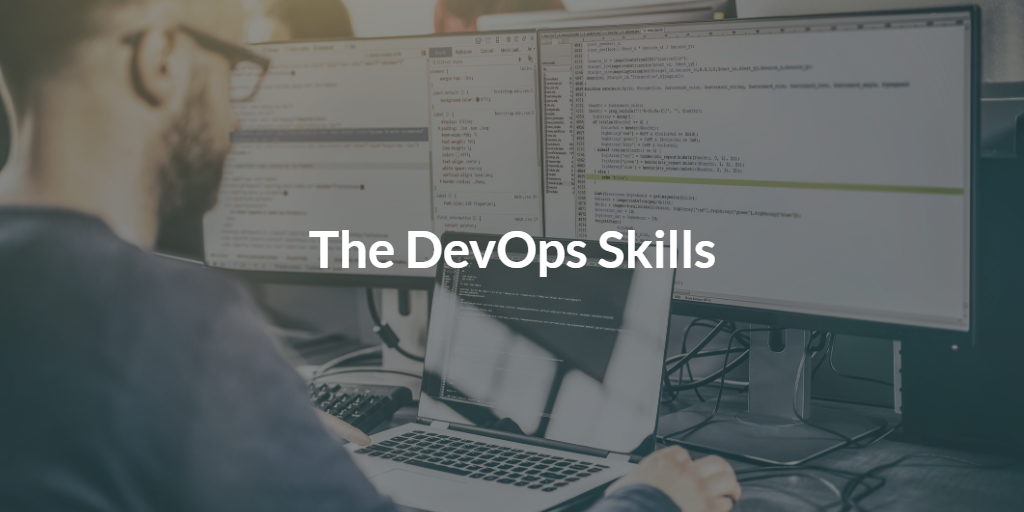
DevOps is a dynamic and ever-improving set of practices that emphasizes collaboration and communication between software developers and other IT professionals.
All the people involved in developing software products and services and all the people dealing with delivering and managing those products and services do not all do the same things but needs some common skills in order to work together in a DevOps team.
The 'Upskilling: Enterprise DevOps Skills Report 2019' from DOI has identified the following “must-have” skills:
- Automation skills.
- Process skills.
- Soft skills.
DevOps Automation Skills
A DevOps professional is aiming to reduce waste and improve speed along the software development process, and automation is a key skill to succeed. A DevOps team member should also have knowledge around automation tools.
DevOps Process Skills
DevOps is Culture, so People and Process come first. This is the reason why Automation is important only if accompanied by working processes. DevOps professionals must have the capability to streamline processes to make them efficient.
The key process skills are:
- Software development life cycle.
- Understanding of process flow and analysis.
- Agile.
- Experience with test-driven deployment concepts and methods.
- System thinking.
DevOps Soft Skills
DevOps is not just software or IT, DevOps is Individuals as part of a Team. Individuals need to get engaged and motivated, this is the reason why soft skills have been considered as must-have skills.
The key soft skills are:
- Collaboration and cooperation.
- Problem-solving.
- Interpersonal skills.
- Sharing and knowledge transfer.
- Personal value commitment.
- Flexibility and adaptability.
A DevOps Leader must have these skills in order to lead people through a DevOps cultural transformation.
Discover the Skills That are Most Important to DevOps teams in 2019
Source: Based on the official report of the DevOps Institute, “2019 Upskilling: Enterprise DevOps Skills Report”.








